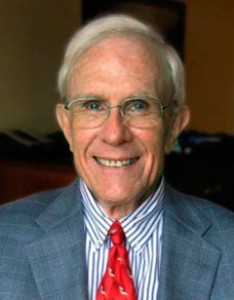Glen H. Elder Jr., the Howard W. Odum Distinguished Research Professor of Sociology at the University of North Carolina at Chapel Hill, has been selected as the 2016 recipient of the W.E.B. Du Bois Career of Distinguished Scholarship Award from the American Sociological Association (ASA). The DuBois Award is the discipline’s highest recognition and “honors those ASA member scholars who have shown outstanding commitment to the profession of sociology and whose cumulative work has contributed in significant ways to the advancement of the discipline”. Elder will be presented with the award at the 2016 ASA meetings this summer in Seattle.
 Elder is a prominent figure in the development of life course theory, methods, and research. He studies individuals and groups of people with in-depth interviews and other measurements across different times in their life span with the objective of investigating how changing environments have influenced them.
Elder is a prominent figure in the development of life course theory, methods, and research. He studies individuals and groups of people with in-depth interviews and other measurements across different times in their life span with the objective of investigating how changing environments have influenced them.
He came to this “life course perspective” after completing graduate work in sociology and psychology at the University of North Carolina (UNC-Chapel Hill, 1961), and accepting a faculty appointment at the University of California (Berkeley). A research affiliation with its famed Institute of Human Development introduced him to the concept of studying “people the long way.” The Institute staff carried out this type of study by following birth cohorts of Californians over their lives. However, they ignored an essential element in life-course thinking, the social context and its potential explanation for why people develop and age as they do. By contrast, a life course approach locates people in relation to their social pathways, historical time and place. Over the past 40 years, life course theory has contributed to significant advances in biographical methods and research.
An early application of this thinking is expressed in Elder’s book, Children of the Great Depression (1974/1999). Members of these two longitudinal samples were born in the early and late 1920s, grew up in Oakland and Berkeley, California during the Great Depression, and were involved at home and abroad in World War II. Elder traced the impact of Depression and wartime experiences from the early years to middle age. Most of these “children of the Great Depression” fared unusually well in their adult years, and this led to questions and research on the impact of experiences during World War II, such as marriage and access to higher education. The interdisciplinary nature of this approach prompted collaborations with historians in the 1970s and the initiation of projects with developmental psychologists in the 1980s-90s. During this period, senior scholar awards from the National Institute of Mental Health (1985-2000) and the Spencer Foundation enabled Elder to establish a life course program of longitudinal studies at the University of North Carolina – Chapel Hill. In 2003, a new handbook on the life course symbolized the dramatic growth of life course studies as a field of inquiry across disciplines in social and biological sciences.
Changing times and lives has continued as a central theme of Elder’s work into the 21stCentury. During the 1980s, an economic crisis in rural America involved him in a collaborative study of children and families in the Midwest. The project is continuing today with members of four generations. The increasing concentration of poverty in American inner cities prompted another collaborative study in the 1990s, this time focused on inner city black and white youth in Philadelphia. Most recently, the growth of ethnic diversity and social inequality in American society has motivated Elder’s collaboration in an ongoing national longitudinal study of health among adolescents and young adults from different ethnic groups.
He has served as Vice President of the American Sociological Association and President of both the Sociological Research Association and the Society for Research on Child Development. Elder’s honors include a Guggenheim Fellowship, Fellow of the American Academy of Arts and Sciences, and distinguished career awards from sections of the American Sociological Association, the Society for Research in Child Development, and the Society for the Study of Human Development.
Elder is currently engaged in a longitudinal study of the 1900 generation, with emphasis on the 1920s, the Great Depression and World War II.

